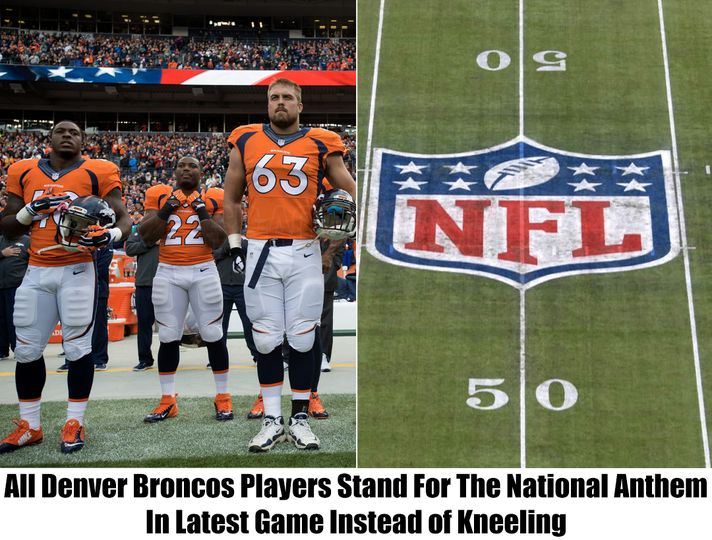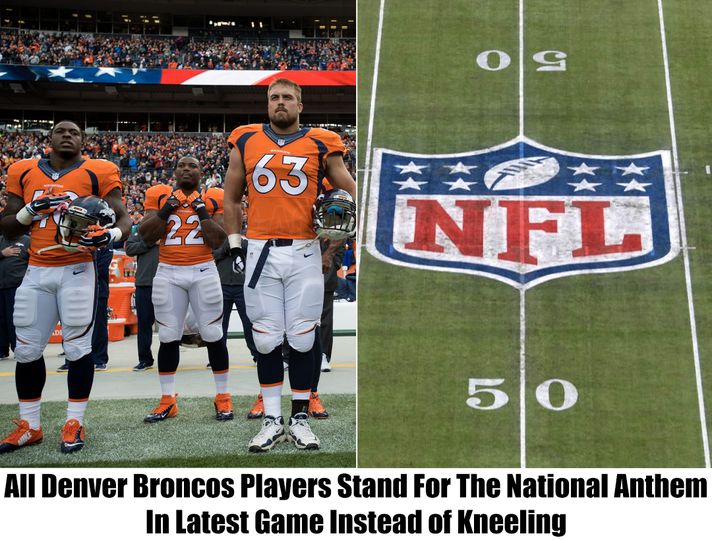In the ever-evolving landscape of sports and activism, the Denver Broncos, known for their football prowess, made headlines in their recent game for standing during the national anthem. This decision carries immense significance and highlights the complex nature of the ongoing debate surrounding athlete protests.
The act of kneeling during the national anthem emerged as a symbol of protest and social justice, drawing attention to racial inequality and police brutality in the United States. It all began in 2016 when former San Francisco 49ers quarterback, Colin Kaepernick, first took a knee. Since then, athletes from various sports leagues have followed suit, using their platforms to advocate for change.
However, the Broncos’ choice to stand during the national anthem marked a departure from this trend. By choosing to stand, they conveyed a message of unity and respect for the flag and the values it represents. Their decision serves as a reminder that activism comes in different forms and that there is no one-size-fits-all approach.
It’s important to note that the Broncos’ choice does not diminish the significance of addressing social justice issues. Athletes and teams across the NFL continue to engage in various forms of activism and philanthropy aimed at bringing about positive change in their communities.
The Broncos’ decision was not made in isolation; instead, it was a collective choice involving players, coaches, and team officials. They engaged in open dialogue and communication, sharing perspectives and experiences before reaching a consensus to stand. This deliberate approach underscores the importance of thoughtful decision-making and unity within the organization.
While the response to the Broncos’ decision was mixed, as is often the case with matters related to the national anthem and athlete protests, it sparked an essential conversation. Some fans applauded the team for taking a stand in a different way, while others expressed disappointment for their choice not to kneel.
In today’s hyperconnected world, where every action and statement can be dissected and debated on social media and in the news, athletes and teams face heightened scrutiny. The Broncos were fully aware of the attention their decision would garner, and they embraced the opportunity to contribute to a larger conversation.
Furthermore, the Broncos’ choice adds another layer to the ongoing dialogue about the intersection of sports, politics, and activism. It demonstrates that athletes and teams have a range of options when it comes to expressing their beliefs and values, and that sincerity and thoughtfulness matter most.
The debate about the national anthem and athlete protests is unlikely to fade away anytime soon. It reflects the broader societal conversations taking place across the United States and around the world. As athletes continue to use their platforms to advocate for change, we can expect to see a diverse range of actions and statements, each carrying its own significance and impact.
For the Denver Broncos, their decision to stand for the flag was a deliberate choice that conveyed unity, respect, and a commitment to engaging in meaningful conversations about the issues that matter most to them and their communities. It serves as a reminder that in the world of sports, as in life, there is no one right way to make a statement, and every action has the potential to spark important discussions and inspire change.






